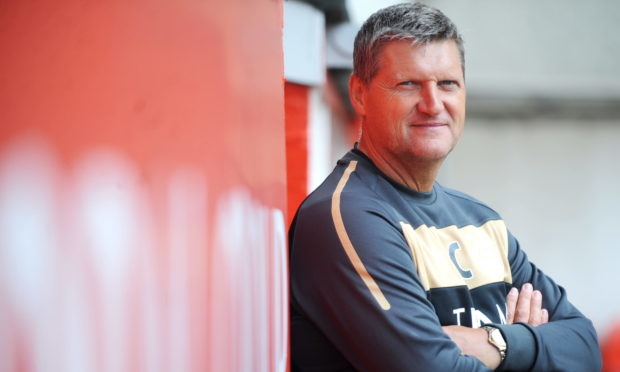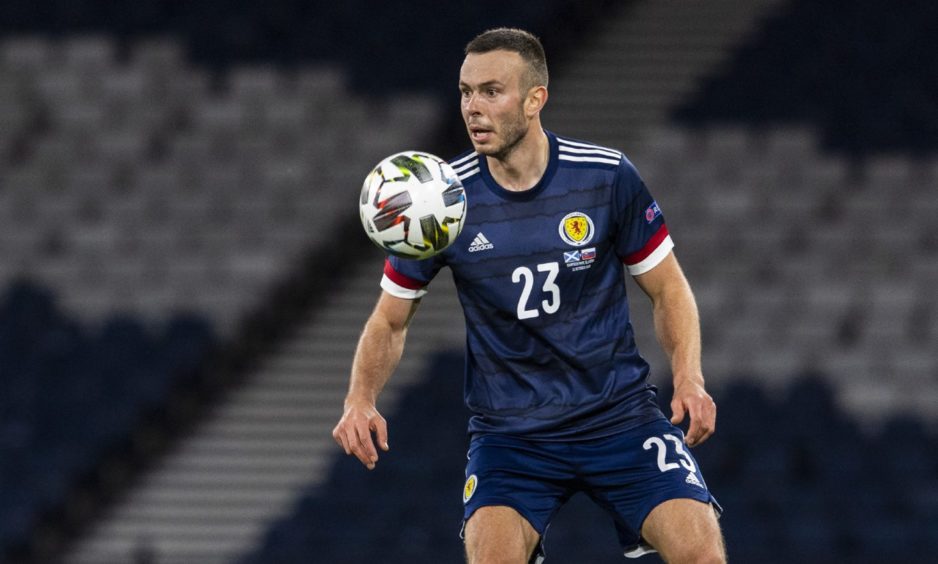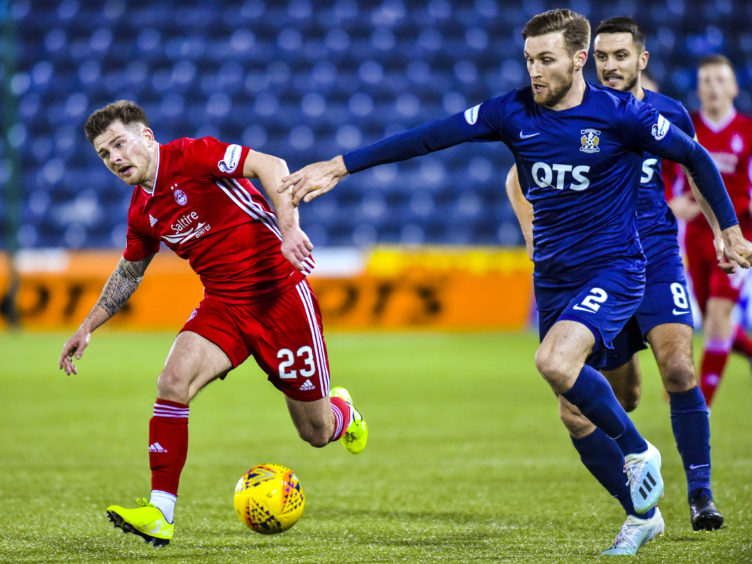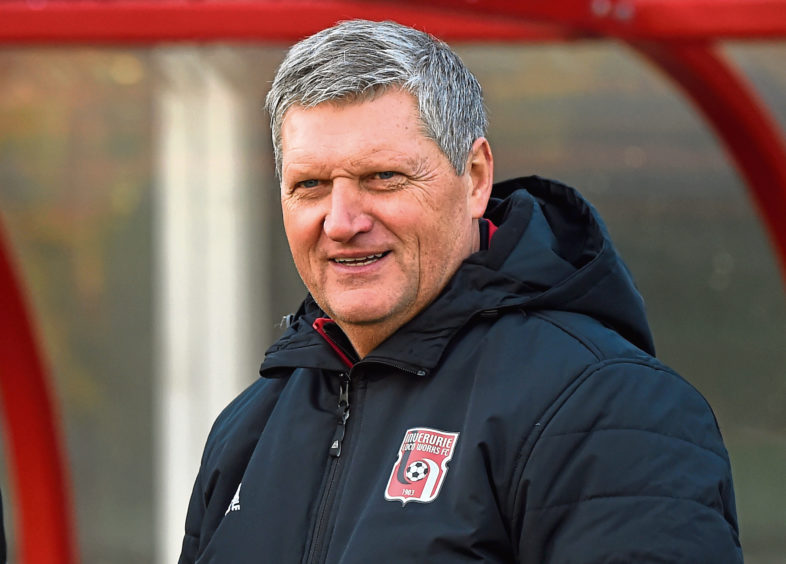A group of players bidding to make history with Scotland tonight will all do so with a common coach in their backstory.
Six of Scotland’s 25-man squad have all been under Neil Cooper’s tutelage at Aberdeen.
Working closely with Neil Simpson, the head of youth, and various managers across his 11 years of service at Pittodrie, Cooper had the remit of developing players for the first-team.
Andy Considine, Scott McKenna, Kenny McLean, Stephen O’Donnell, Ryan Jack and Lawrence Shankland have all crossed Cooper’s path. Had Ryan Fraser not withdrew due to injury, more than a quarter of the squad would have been former Aberdeen academy players.
“Getting to that level they’re at now, of being a full international, is fantastic,” said Cooper, who left the Dons in 2014. “They’ve worked hard throughout their careers and benefitted from a good youth policy, but you’ve also got to give credits to the scouts for picking them up at a young age.
“The coaches have worked with them through the different levels to get them to the Aberdeen first-team. That’s not happened with them all – there’s different paths you can take – and it’s really good what they’ve done.”
Considine was the first on his radar but the last to receive a cap; his debut against Slovakia last month came at the age of 33 after 16 years around the Aberdeen first-team.
“Looking back, I remember Andy Considine coming through when there wasn’t a lot of finance at the club. We were told we could only take one in and there’s two we wanted – Andy Considine and Rory McAllister was another one.
“We only had one full-time wage so we had to sit down, speak to their parents, explain the situation and hopefully by the end of the season, there’s a full-time wage there. They both decided to sign there and then.
“Andy’s performance levels have been up there all the time. He never lets you down and got great reward later in his career by getting his cap. He’s a great player with a great attitude.”
🗣 ‘𝙄’𝙫𝙚 𝙣𝙤 𝙙𝙤𝙪𝙗𝙩 𝘼𝙣𝙙𝙮 𝙥𝙡𝙖𝙮𝙚𝙙 𝙖 𝙢𝙖𝙨𝙨𝙞𝙫𝙚 𝙥𝙖𝙧𝙩 𝙞𝙣 𝙜𝙚𝙩𝙩𝙞𝙣𝙜 𝙢𝙚 𝙩𝙤 𝙬𝙝𝙚𝙧𝙚 𝙄 𝙖𝙢 𝙣𝙤𝙬’
Scott McKenna reveals ‘massive’ role @AberdeenFC star Andy Considine has played in his career
– With @ArnoldClark pic.twitter.com/jfIuX2YEJq
— PLZ Soccer (@PLZSoccer) November 10, 2020
Another left-sided centre-back came to the fore towards the end of his tenure. McKenna, who hails from Kirremuir, first caught the eye just as Derek McInnes took charge in 2013.
“Craig and Archie were still in charge and I had a youth game down at Hibs. Scotty was still at school and came on at half-time. Derek (McInnes) was at the game and spoke to me – Scotty was different class, even though he was still at school. He was dominating, quite strong in the air and on the ground. In one-v-ones he got the better of most strikers.”
Both players managed to get in the Aberdeen team and stay there. McKenna had loan spells at Ayr United but cemented a spot for himself, earning a move to Nottingham Forest this summer.
“Andy and Scott got in the first-team and managed to hold a place down. Ryan Jack was the same; he reminded me of Jim Bett, the way he was able to take the ball with his back to play. He would make time for himself and hardly give the ball away.
“He was good cover for the back four but he would get on the ball and keep possession. He was always one the club thought was going to play at a high level. He’s proven that.”
O’Donnell, Shankland and McLean took different paths. One got let go by the Dons, one dropped down the leagues for his chance and one opted for a move closer to home, before returning to Aberdeen later in his playing career.
“Stephen came to us from school, from the Ayrshire area. He played right-back and would get up and down, very athletic. He’s always been the same. His use of the ball was good but he wasn’t very good defensively, which was the side of the game he had to improve on.
“It got to a level where the manager and coach had to make a decision. We felt he was a wee bit short (of the required level). There was a trial game at Toryglen in Glasgow, for players that had been let go, and Stephen played that game. Celtic picked him up from there and didn’t quite make it there either.
“He went to Partick Thistle and did really well. He was playing regular first-team football, got a move to Luton and did well. He then came back up to Kilmarnock. He took a different path to do that and done fantastically well. He’s had a couple of setbacks and worked through that.
“Lawrence came to Aberdeen and played in the youth team with me. Derek (McInnes) was aware he was a great goalscorer – his finishing was really good. When I left the club he got a few chances but wasn’t quite ready; the manager had to make a decision.
“He went on loan and then went to Ayr United, played week in week out and went from strength-to-strength. He was scoring goals regularly and got a great move to Dundee United. He’s now in the national squad.”
Cooper also keeps track of those who have not made it to the international fold but have had the benefit of his coaching. Jack Grimmer, Fraser Fyvie, Michael Rose, Chris Maguire, Scott Wright and Nicky Clark are all namechecked in conversation.
The ex-Forfar and Inverurie Locos boss, who has been out of football since leaving the Highland League club in October last year, will be a keen observer tonight as some of his former charges bid to make themselves national heroes.
“When you get a chance at the bigger clubs, you’ve got to go in there and show you can handle it. Your temperament and your performance – you can’t let it bypass you because you don’t get too many chances. There’s a lot more at stake at the bigger clubs.
“You try to get them to the first-team and then to stay there. People challenge you week in, week out. You try to make them aware of where they want to be in two or three years’ time. Some take a bit longer – some are a bit more mature.
“Managers have got to have that trust that you can play consecutively. If he doesn’t, you take a wee step back. But these boys were different class.”



